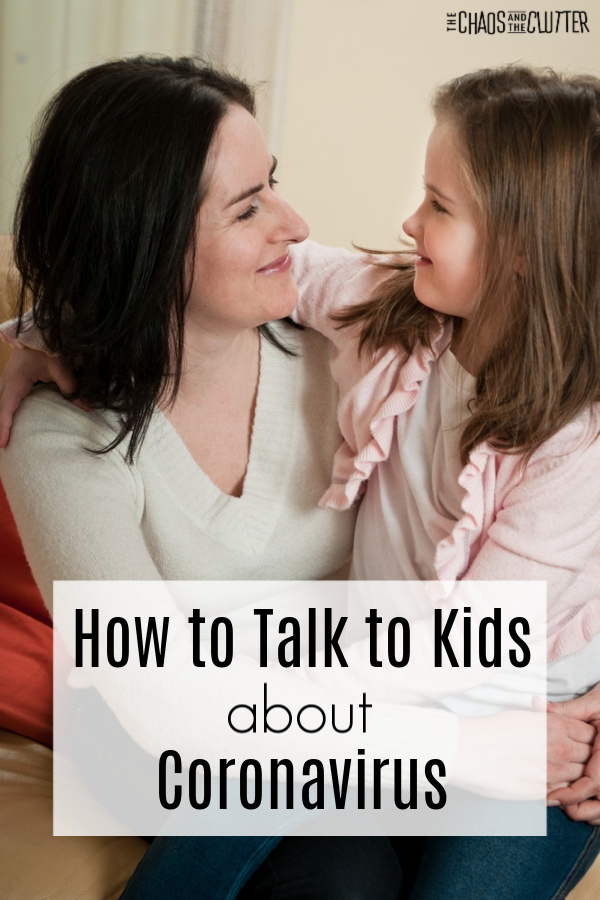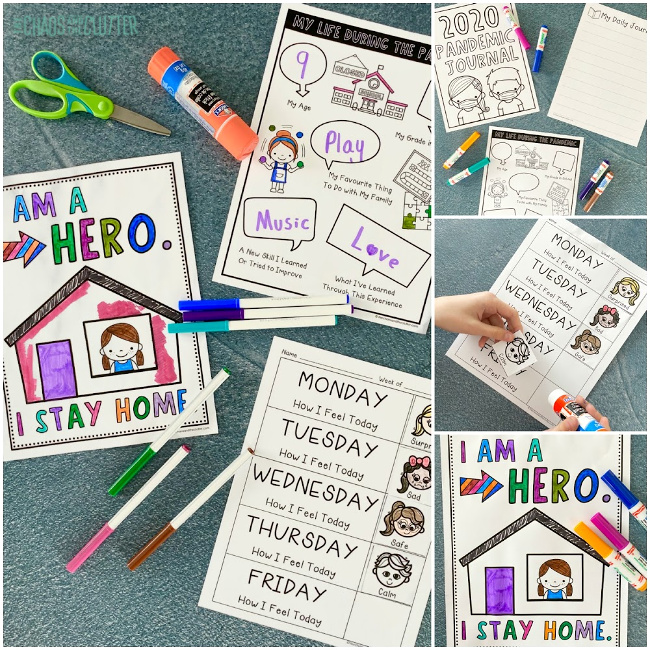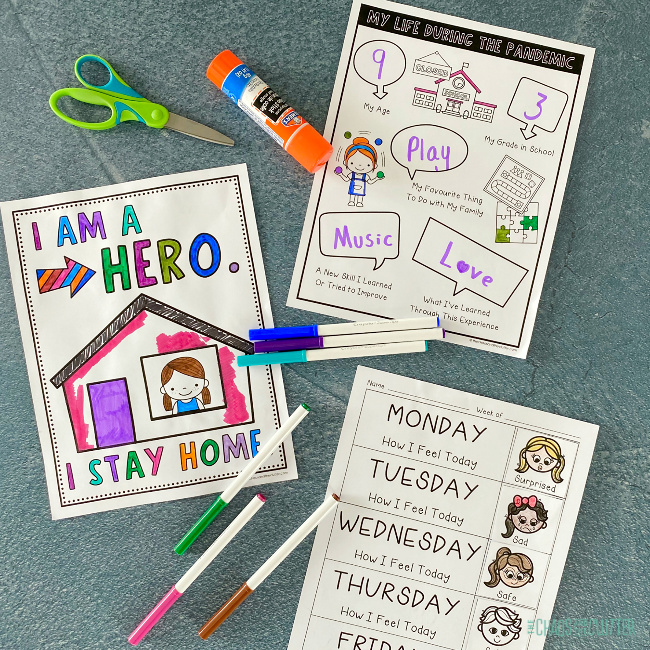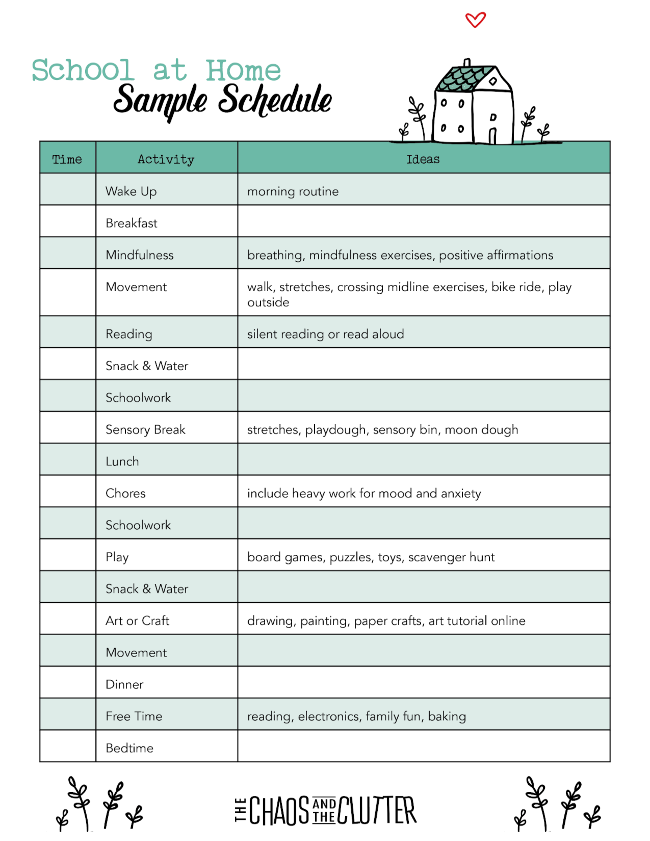Addressing sensitive topics such as the coronavirus can be tricky, especially if your child struggles with anxiety. These are scary times for people of all ages. Learn how to best talk to your child about the current pandemic and quarantine and help them better cope.
 I know that personally, I’ve been feeling overwhelmed and worried. It all seems completely surreal. I have a hard time wrapping my head around how much has changed in such a short period of time. If I’m struggling, I can only imagine what kids are thinking.
I know that personally, I’ve been feeling overwhelmed and worried. It all seems completely surreal. I have a hard time wrapping my head around how much has changed in such a short period of time. If I’m struggling, I can only imagine what kids are thinking.
I’m going to preface this article with the reminder that this advice is coming to you parent to parent and if you have further concerns, you should consult your child’s doctor or therapist.
Children who have anxiety or who have experienced early childhood trauma and are therefore hypervigilant, pick up on the emotion and unspoken fear in a room more than other kids do. We as parents may think that we are shielding them from things when we don’t talk about something when in fact for kids like these, that is the worst thing we can do. They are already aware that something is going on and without us addressing it, they will fill in the blanks with their worst fears.
So how do we talk to them? What should we say?
Be as straightforward as you can in an age appropriate way. Talk about facts, stay away from rumours. Ask them what they’ve already heard and how they feel about it. Tell them that you will continue to talk to them openly and they do not need to be afraid of you keeping secrets from them.
They may fear that a family member has it or that they have it. It’s important that they know that if the situation changes, you will let them know. That can ease a lot of their anxiety.
Avoid turning on the news with them in the room as some of the panic that is being created such as people hoarding toilet paper and hand sanitizer will only compound their worries.
Give them their own 2020 Pandemic Journal to fill out. This journal provides them an outlet for discussing their true feelings, helps them with growth mindset concepts such as gratitude and hopefulness, and helps them feel like there is something they are doing during this crisis.  Discuss why there is an effort to reduce the curve of the virus by shutting down schools and large gatherings. Be direct in how this will affect them. Is their school closing down? For how long? (it’s okay to say that you don’t know but will update them when you do know) Who will watch them with the schools closed? Will you or their other parent be going to work?
Discuss why there is an effort to reduce the curve of the virus by shutting down schools and large gatherings. Be direct in how this will affect them. Is their school closing down? For how long? (it’s okay to say that you don’t know but will update them when you do know) Who will watch them with the schools closed? Will you or their other parent be going to work?
When I talked to my kids about the likelihood of schools closing next week, I assured them that we had enough food to last if we were stuck at home for weeks and showed them the freezer and pantry (some of our kids went hungry prior to coming to our family, so concerns about hunger are very real to them).
I asked my kids what they had heard and what their concerns were. Some of them talked about the toilet paper shortage and I explained that we had quite a bit of toilet paper, but that if we ran out, we could use paper towel and throw it in the garbage or even use rags and wash them in a worst case scenario. That made sense to them.
One of our sons was concerned about his Oma as he had heard at school that the virus is more dangerous for older people and she is in her 80s. That’s a very valid concern and it would have done more harm to lie about it or try to minimize his feelings. So I acknowledged the risks, explained what she is doing to try to limit her chances of exposure, and dove deeper into his feelings to allow him to fully explore those.
Kids have so much uncertainty and may be afraid to ask questions. I think a question that a lot of kids have and may be afraid to even voice is “will someone I love get sick?” Address the underlying emotion behind this one.
Allow your child to grieve. Change is hard. They may need to grieve the loss of their routine, their school friends, their graduation ceremony, their dance competition, whatever it is they have lost through this situation. Validate that loss and help them move through the emotions of their grief.
I really like this video for talking to kids about the virus. It doesn’t sugar coat, but it also doesn’t catastrophize. It is in Vietnamese, but has English subtitles. The song is super catchy and gets stuck in your head for days!
Summary of how to talk to children about COVID-19:
- be direct
- be honest
- talk specifically about ways the situation affects them and your family
- ask what they’ve heard
- ask how they feel
- allow kids the opportunity to grieve all the changes
- it’s ok to not have all the answers
- repeat every day until the situation is resolved
Specific Resources to Help Kids Understand:
Demonstrating the Importance of Hand Washing – Great hands-on activity that really drives the point home.
For children who struggle with anxiety, autism, or other special needs, this Coronovirus Social Story is a wonderful (and free) resource to help guide them through.
This Outbreak Factsheet from The National Child Traumatic Stress Network has some excellent suggestions on helping children cope and also about reducing your family’s risk.
It is normal for something like this to cause additional anxiety, so it is important to spend time each day helping them talk through their emotions about this.
Resources for you to help kids work through those big feelings:
- Activities to Teach Kids About Emotions
- Resources to Teach Kids About Emotions
- Feelings Jenga
- Spider Emotions Matching Game
- Create a Calm Down Kit for Your Child
Talking to Teens and Older Kids about Coronavirus:
Teens are a tricky demographic when it comes to the pandemic. Early research shows they have mild symptoms and are at high risk of not realizing they are carrying the virus. This means they could be potentially spreading the illness while oblivious to the danger.
It’s also a very social age and that all important frontal lobe hasn’t fully developed yet so they are not as cognizant of risks. In simple terms, they feel pretty invincible.
When you combine mild symptoms for most teen carriers, an underdeveloped frontal lobe, and a strong desire for social connection, you can see why it’s especially important to help this age group grasp the gravity of the situation and the need for social distancing.
One thing that really helped one of my teen sons to change his mindset is the meme: “Your grandparents went to war to protect you. You’re being asked to sit on the couch to protect them. You can do this.”
Teens are older. Invite them into the discussion. Answer their questions with honesty. Validate how much they’ve lost. Some of them have lost graduation ceremonies, part time jobs, birthday parties, school, and all of them have lost the routines and certainties they had before the world turned upside down.
But after you’ve listened and validated, help them to understand that their actions could save lives. Because they really could.
Download your copy of the 2020 Pandemic Journal for Kids by entering your email address below.
You may also be interested in:
2020 Pandemic Journal for Kids

